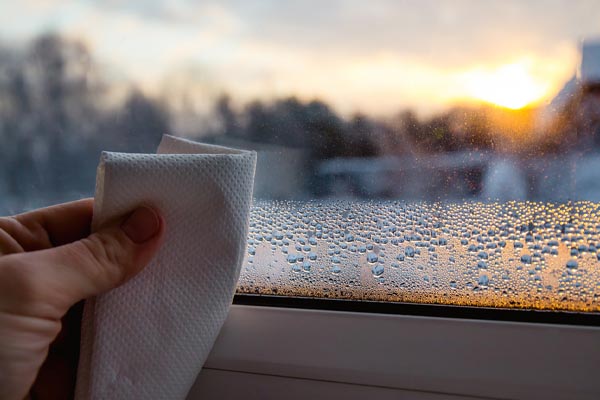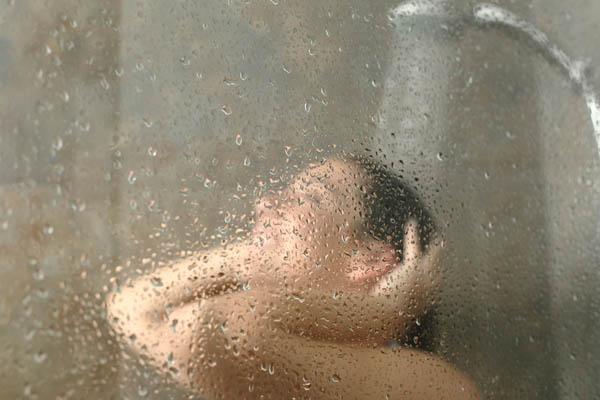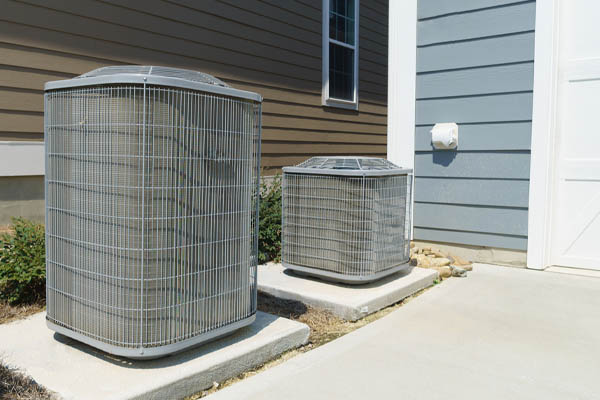
When it comes to being comfortable in your home, the temperature is not the only consideration. Humidity levels are important, too. When there is too much moisture in the air, you and your family can start feeling uncomfortable. During the summer, when you want to cool down, you will feel hot and sticky. Some people are especially vulnerable to high humidity. In this article, we answer the question, “Why is my house so humid?”, and offer some solutions to the problem.
Reasons For A Humid Home
The amount of moisture in the air is an important factor for your house as well as your own well-being. When humidity levels are too low OR too high, it causes problems. There are a few different reasons for high humidity in a home. It could be due to property damage or poor house design. Environmental factors also play a part in humidity levels. Air conditioning equipment that is faulty or not right for your needs can be at fault as well.
How High Humidity Affects Families & Their Homes

When the temperatures soar our bodies sweat and the sweat evaporates on the skin which helps us cool off. When there is too much humidity in the air, sweat doesn’t evaporate the way it should. The temperature may not be extreme, but, as mentioned above, the moisture in the air can make you feel too warm and also sticky. Because your body feels too hot, it continues to produce sweat in order to cool off. Your body loses water and electrolytes.
High humidity can cause problems with your family’s health. This is because bacteria thrive in areas where it is hot and humid. Bacteria, mold, dust mites, and mildew are attracted to moisture. Allergies and breathing issues often result, especially for those who are susceptible to them.
How To Recognize The Signs of High Humidity
If you know what you are looking for, you can pinpoint the signs fairly quickly. In fact, it is likely that you have seen the signs without realizing what you were looking at. Here’s what you need to look for when it feels humid in your home:
1. Peeling Paint
Moisture can gather all over the walls in your home. Too much humidity can cause wallpaper and paint to wrinkle up or form bubbles. Painted walls often peel because of the moisture.
2. Condensation

When the weather is colder, moisture in the air turns from a gas into a liquid. You can see the effects around and on your windows. There may be liquid on your window panes and your windows may fog up as a mirror does when you take a warm shower. Condensation collects on metal doors, too.
3. Dark Spots On Surfaces
Inspect the surfaces in your house. If there are dark spots on walls, floors, counters, or appliances, it is a sign that mold and mildew are beginning to grow there. Mold is usually black or dark green in color. Your basement, bathrooms, attic, and kitchen are all subjected to higher amounts of humidity.
4. Wet Stains
The ceilings and walls in your house may have stains caused by moisture. If the colors vary, take a closer look to see if the problem is wet stains. This is another sign of too much humidity.
5. Constantly Sweating
When you feel as though you never stop sweating and the sweat just sits on your skin, it is an obvious sign of excess moisture in your house. If temperatures are moderate to low and you still feel hot, humidity is probably the problem.
Why Humidity Levels Rise
1. Normal Day-to-Day Activity

Whenever you use water, such as for taking showers or baths, washing dishes and clothes, and cooking, some of the water you use will evaporate and turn into water vapor. The water vapor makes humidity rise. However, if the house is designed well and there are no other issues, the humidity from everyday activities diminishes.
2. Your Home May Have Poor Ventilation
It is important for there to be ventilation in all areas that gather high amounts of moisture. This way, humid air moves out of the home instead of hanging around inside. Windows throughout the house, exhaust fans in bathrooms, and ceiling fans are all good ways to move moist air.
3. You Have Leaks In Your Plumbing

When there is too much moisture in your home, it can be caused by leaking through your roof or in your plumbing. If you know there are leaks or even suspect it, contact a roofer or plumber who can find the source of the problem and deal with it.
4. Your Air Conditioner Is Too Big
Air conditioners are supposed to be matched to the size of your home. If your air conditioning unit is bigger than it needs to be, it cools and shuts off too quickly to take humidity out of the air. If this is the reason for the excess moisture, you will need to have your HVAC system replaced. You will keep facing high humidity levels until you deal with your oversized air conditioner problem first.
5. Moisture Seeps From The Ground Into Your Home
Water can get through walls and condense on basement floors. If your basement floor is suspiciously wet, ground moisture could be the reason. You can help stop the problem by providing better ventilation and waterproofing your home.
What Is The Right Amount Of Humidity For Your Home?
 Allergens and other pollutants multiply in places with excessive humidity. When you are able to control the amount of moisture in the air and keep the indoor humidity levels in the right zone, allergens and pollutants reduce rather than multiply. This is beneficial to your family’s health. Perfect humidity makes for perfect comfort. You will feel cooler and won’t feel as though you are always perspiring. The right levels of humidity make a home much more comfortable.
Allergens and other pollutants multiply in places with excessive humidity. When you are able to control the amount of moisture in the air and keep the indoor humidity levels in the right zone, allergens and pollutants reduce rather than multiply. This is beneficial to your family’s health. Perfect humidity makes for perfect comfort. You will feel cooler and won’t feel as though you are always perspiring. The right levels of humidity make a home much more comfortable.
What If The Humidity Is Too Low?
When there is not enough moisture in the air, your skin may be dry, your eyes may be dry and sore, your sinuses can act up and you can suffer from nasal congestion. Dry air causes wallpaper to peel and plants to wither away. The beautiful hardwood floors can begin to separate and crack. When the air is too dry for weeks at a time, your wooden furniture can start to crack and separate as well. You can buy an indoor thermometer to measure the temperature as well as the amount of humidity inside your house. When you are certain of what the problem is, it is easier to change the environment and keep humidity levels in the perfect range.
Decreasing Humidity Levels In Your Home

- Dehumidifier: Dehumidifiers take the moisture from the air. You can purchase different sizes to accommodate the size of your home. If necessary, you can purchase a dehumidifier that works for the entire house.
- Ventilation: The areas with the highest levels of humidity, such as the bathroom and kitchen, are especially vulnerable to problems caused by moisture. Use an exhaust fan in the bathroom and open windows to keep the air moving.
- Weatherstrip Your Home: You can keep the humidity outside from going inside with weatherstripping. Weatherstripping seals the edges around your windows and doors. You may want to use a caulk around your bathtub, toilets, and sinks.
- Insulation: Simply adding more insulation helps to keep the air outside from getting inside and vice-versa.
- Air Conditioner Size: An HVAC team can tell you if your air conditioner is the correct size for your needs. They may need to replace air conditioning units. Doing this can save money as well as lower humidity levels.
Conclusion
Many families are putting up with too much humidity. When you take certain measures to combat the problem, you are protecting your family as well as your home. If the advice above is not enough, contact HVAC experts. HVAC techs can determine causes, devise solutions, and service your home at affordable prices.
Contact Point Bay Fuel For HVAC Assistance

Point Bay Fuel supplies the best in cooling and heating in Ocean and Monmouth County, New Jersey. Our highly experienced certified professionals are happy to assist you with all of your HVAC needs. We perform installations, tune-ups, repairs, replacements, and more. Our technicians offer knowledge, experience, and satisfaction.
Point Bay Fuel offers its services at competitive prices. We can keep you comfortable, make your home more energy-efficient, and lower your costs for heating and cooling. If you need a repair or need your HVAC system replaced, we can provide you with quality service at reasonable prices. Our service offers a guarantee of satisfaction and in-home estimates. Contact Point Bay Fuel and schedule an appointment today!
Contact us now by calling (732) 349-5059 to speak to one of our home comfort specialists!
The post Why Is My House So Humid? appeared first on Point Bay Fuel.
No comments:
Post a Comment